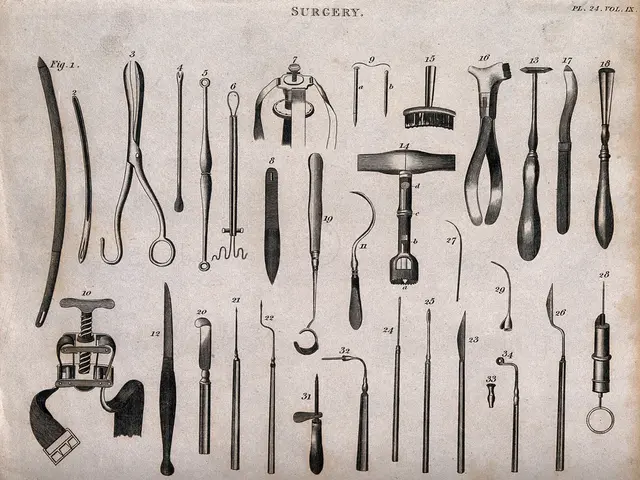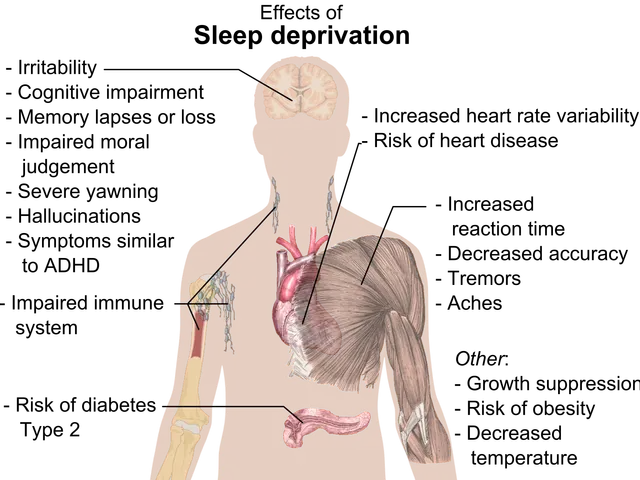Human Brain Adaptation: Struggling in a Changing World?
In today's fast-paced world, the ancient human brain, evolved under different conditions, struggles to keep up with constant high volumes of information and the chronic stress of modern life. However, there are strategies that can help bridge this gap, enabling our brains to better cope with information overload and reduce stress.
Firstly, exposure to natural environments can have a calming effect on the nervous system, restoring attention [1]. This simple act can help counter the tension created by the mismatch between our inner wiring and the outer world.
The brain thrives on predictability. Setting schedules, limiting decision-making, and establishing boundaries can reduce overload, providing a more manageable environment for our brains to function optimally [1].
Modern stressors are chronic, not life-threatening, and keep the body in a low-grade state of fight-or-flight. Techniques such as deep breathing (like box breathing or 4-7-8 breathing) actively reduce cortisol, the stress hormone, helping to mitigate the physiological effects of stress [2].
Mindfulness and meditation practices promote present-moment awareness, which lowers resting heart rate and blood pressure, increases self-awareness and creativity, and reduces negative emotional focus [2]. These benefits collectively help the brain manage information overload and emotional stress more effectively.
Physical exercise and proper nutrition also support brain function by enhancing cognitive performance and protecting against mental fatigue [3]. The use of certain supplements with adaptogenic and anti-stress properties (such as traditional botanical ingredients like Ginkgo biloba) may further support brain health under stress, though such interventions should be approached carefully and based on scientific evidence [3].
Some people turn to nootropics or brain supplements for support during demanding periods. While these substances can be helpful, it's important to remember that the real challenge isn't to upgrade your brain, but to align your environment with what your brain truly needs [1].
Designing lives that respect the brain's true design means making space for slowness, seeking depth over quantity, and treating rest as sacred [1]. With care, intention, and tools (including subtle aids like nootropics), you can bridge the gap between your inner wiring and the outer world.
Rest is productive and allows the brain to consolidate learning and restore function. Turning off push notifications for an hour each day, eating without screens, walking without earbuds once a week, setting a bedtime, and using supplements only when needed can signal safety to the brain and build resilience [1].
By incorporating these practices into our daily lives, we can create a modern lifestyle that integrates stress-reduction techniques, regular exercise, mindful cognitive practices, and balanced nutrition. This approach provides adaptive strategies for the ancient brain to better handle today’s abundant information and pervasive stress.
References:
[1] The New York Times. (2020). How to Beat Stress. https://www.nytimes.com/guides/well/beat-stress
[2] The Harvard Health Letter. (2017). Mindfulness meditation may help you sleep better. https://www.health.harvard.edu/staying-healthy/mindfulness-meditation-may-help-you-sleep-better
[3] The Mayo Clinic. (2018). Stress management: Mindfulness meditation may help. https://www.mayoclinic.org/tests-procedures/mindfulness-meditation/about/pac-20394664
[4] The American Psychological Association. (2018). Stress in America: The Impact on Mental Health, Part 2. https://www.apa.org/news/press/releases/stress/2018/impact-mental-health-2.aspx
- Incorporating mindfulness and meditation practices into daily life can lower heart rate, blood pressure, and reduce negative emotional focus, providing effective coping mechanisms for information overload and emotional stress.
- Exposure to natural environments can have a calming effect on the nervous system, countering the tension caused by the mismatch between our inner wiring and the outer world.
- The use of certain supplements like Ginkgo biloba, which have adaptogenic and anti-stress properties, may support brain health under stress, but their use should be based on scientific evidence.
- Limit screen time, turn off push notifications, and walk without earbuds to signal safety to the brain and build resilience.
- Proper nutrition and regular exercise are essential for enhancing cognitive performance, reducing mental fatigue, and supporting overall brain function.
- Designing a lifestyle that respects the brain's true design means prioritizing slowness, seeking depth over quantity, and treating rest as sacred.
- By practicing these strategies regularly, we can create a modern lifestyle that combines stress-reduction techniques, mindful cognitive practices, exercise, and balanced nutrition to better handle today’s abundant information and pervasive stress.
- Setting schedules, limiting decision-making, and establishing boundaries can reduce overload, providing a more manageable environment for our brains to function optimally.
- Techniques such as deep breathing actively reduce cortisol, the stress hormone, helping to mitigate the physiological effects of chronic stress.
- Proper care, intention, and tools (including subtle aids like nootropics) can help bridge the gap between our inner wiring and the outer world, supporting mental health and overall health-and-wellness.





